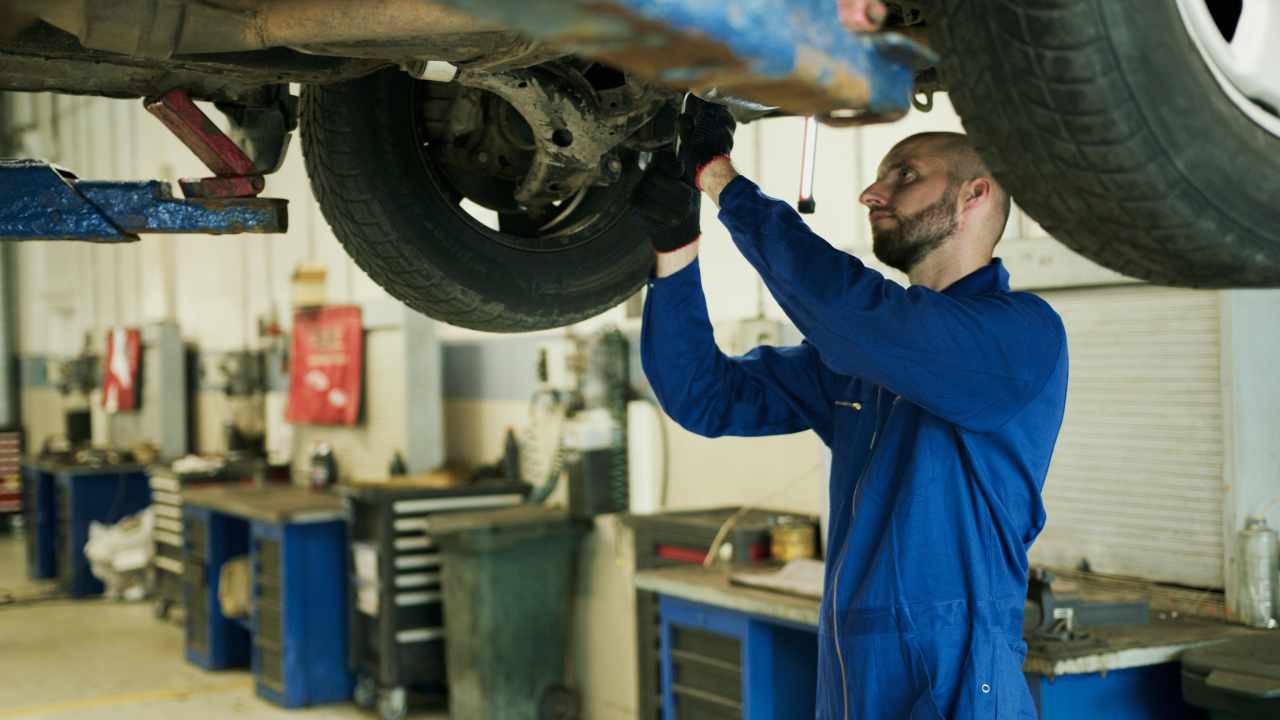Owning a car is both a privilege and a responsibility. While hitting the open road can feel liberating, the costs of vehicle maintenance can quickly pile up if you’re not careful. Neglecting routine care doesn’t just leave a dent in your wallet—it could also lead to serious safety concerns.
Whether you’re a seasoned car enthusiast or a new driver just learning the ins and outs of vehicle maintenance, understanding the most common car repairs and how to prevent them is essential for keeping your car and budget in check.
What you’ll learn in this post:
- The top five car repairs most owners face.
- Warning signs to watch for and tips to prevent costly breakdowns.
- How to decide between DIY fixes and professional help.
Curious about how to save money and extend the life of your vehicle? Keep reading!
Most Common Car Repairs
Even the best-maintained vehicles will need attention from time to time. Here are five common car repairs that most owners encounter, along with the reasons they happen and what to look out for.
1. Engine Issues
Your engine is the heart of your car. Problems with the engine can range from minor annoyances to catastrophic failures.
- Common Causes: Lack of oil changes, clogged air filters, or overheating due to a failing coolant system.
- Warning Signs:
- Check engine light stays on.
- Knocking noises from beneath the hood.
- Loss of power or misfiring.
2. Brake System Repairs
Ignoring your brakes can lead to dangerous driving conditions for you and others.
- Common Causes: Worn brake pads, rotor wear, or low brake fluid levels.
- Warning Signs:
- Squealing or grinding noises when braking.
- Vibrations when pressing the brake pedal.
- Longer stopping distances than usual.
3. Electrical System Failures
A misbehaving electrical system can impact everything from starting your car to powering accessories like your radio and headlights.
- Common Causes: Faulty alternator, battery problems, or corroded wiring.
- Warning Signs:
- Dim or flickering lights.
- Difficulty starting the car or a dead battery.
- Malfunctioning dashboard displays.
4. Suspension Problems
This system impacts how smoothly your car rides and how it handles various road conditions.
- Common Causes: Worn shocks, struts, or ball joints.
- Warning Signs:
- Excessive bouncing or swaying when driving.
- Uneven tire wear.
- Strange noises when hitting bumps or turning.
5. Exhaust System Repairs
Your exhaust system reduces harmful emissions while keeping your car running efficiently.
- Common Causes: Rust damage, leaks in the exhaust system, or a failing catalytic converter.
- Warning Signs:
- Increased engine noise or rattling under the car.
- Reduced fuel efficiency.
- Burning smells or black smoke.
How to Avoid Common Car Repairs
Prevention is key. Here’s how you can reduce the likelihood of facing these common problems.
Regular Oil Changes
Engine damage is often preventable with routine oil changes. Check your car’s manual for recommendations, but a general rule is every 3,000–5,000 miles.
Inspect Your Brakes
Don’t ignore high-pitched squeals or grinding sounds. Regularly check your brake pads and fluid levels, especially if you’re doing a lot of stop-and-go driving.
Monitor Your Battery Health
Clean your battery terminals regularly to avoid corrosion. If your car struggles to start, have your battery tested and replaced if necessary (most batteries last 3–5 years).
Rotate Tires and Check Suspension
Rotating your tires every 5,000–7,500 miles can reduce wear and tear on your suspension system. Look for uneven tire wear and be mindful of strange noises—these could be early warning signs of suspension issues.
Keep an Eye on Exhaust Leaks
Rust on your exhaust system can sneak up on you, especially in wet or salty climates. Inspect pipes and the muffler for wear periodically, and fix leaks promptly.
DIY vs. Professional Repair Advice
When DIY Makes Sense
If you’re handy, there are plenty of small repairs you can handle yourself:
- Replacing air filters.
- Changing windshield wipers.
- Replacing headlight or brake light bulbs.
Just make sure to consult your car’s manual for proper instructions and have the right tools on hand.
When to Call a Professional
For more complex issues like engine or electrical system repairs, it’s best to consult an experienced mechanic. Attempting to fix these on your own could lead to further damage or safety risks.
Safety Tips for DIY Repairs
- Always wear safety gear (such as gloves and goggles).
- Ensure your car is on a flat surface and properly supported with a jack if you’re working underneath.
- Double-check your work—better safe than sorry!
Why Timely Repairs Matter
Neglecting small issues can lead to major—and expensive—problems down the road. A small engine hiccup can turn into a full-blown failure, while delayed brake repairs can compromise your safety.
Addressing repairs early on not only saves you money but also ensures your car stays reliable and safe for years to come.
Keep Your Car in Tip-Top Shape
Staying proactive about your vehicle’s maintenance is the best way to avoid unnecessary headaches and expenses. By understanding the most common car repairs and knowing how to prevent them, you’ll save time, money, and stress.
Are you overdue for a check-up? Don’t wait until there’s an issue. Schedule a maintenance appointment with a trusted mechanic today and give your car the care it deserves.

